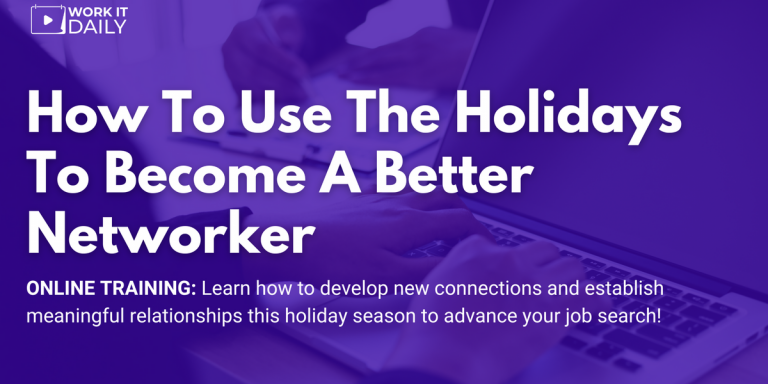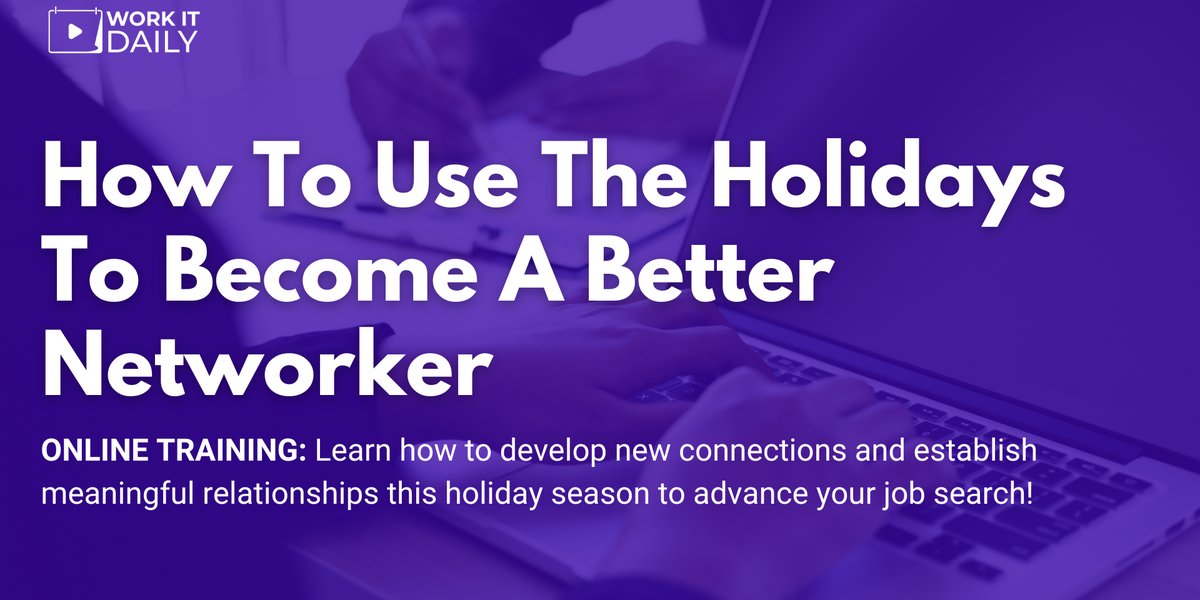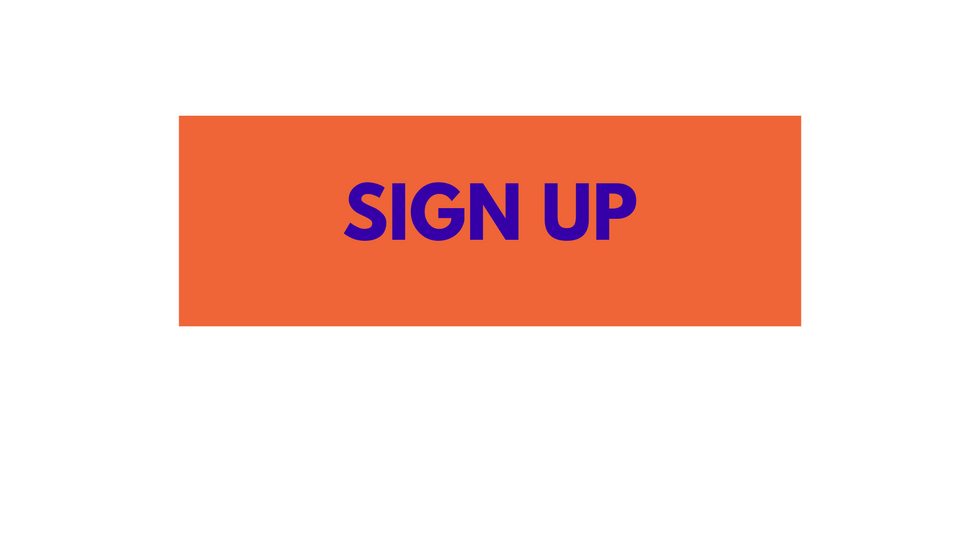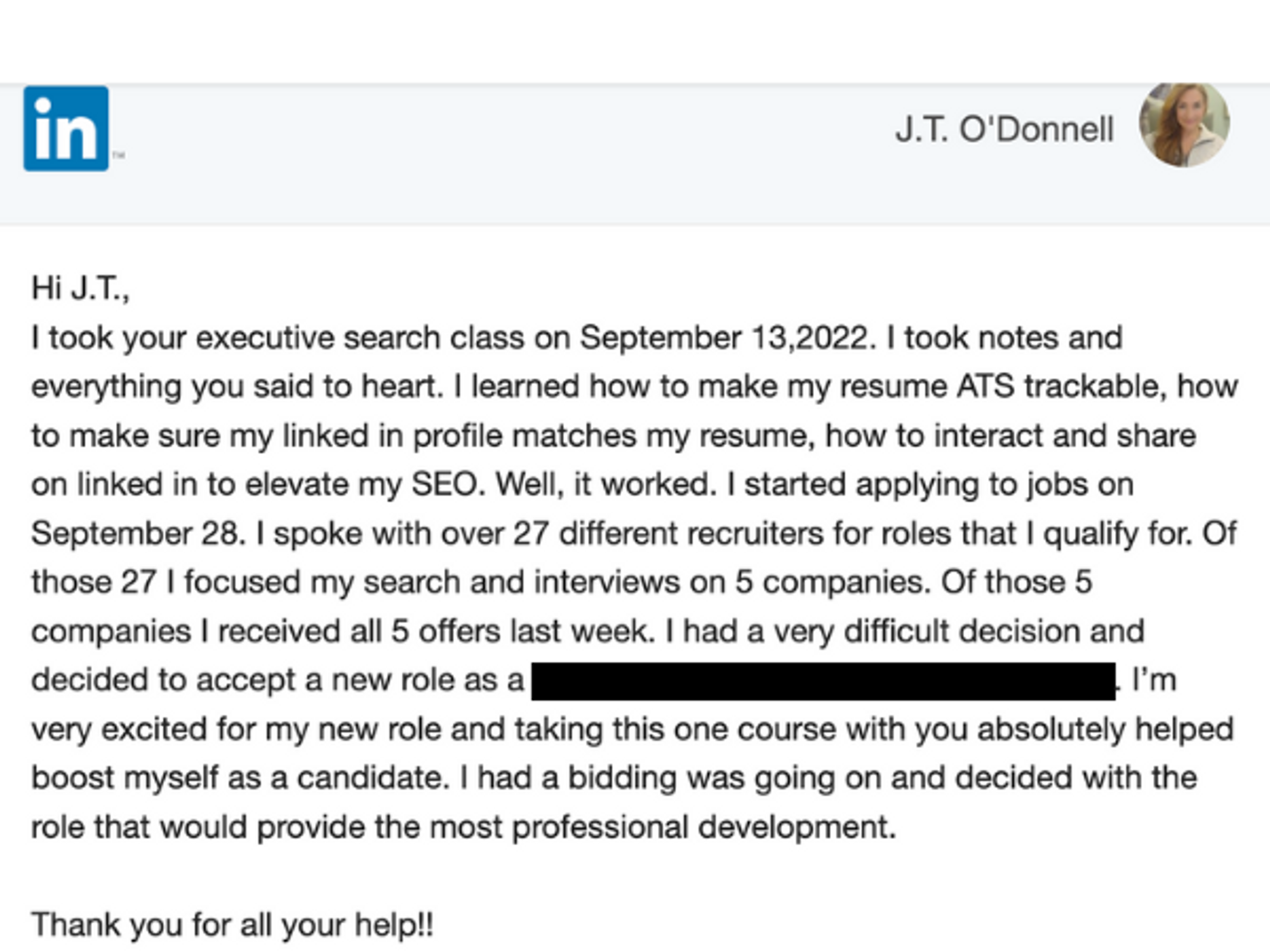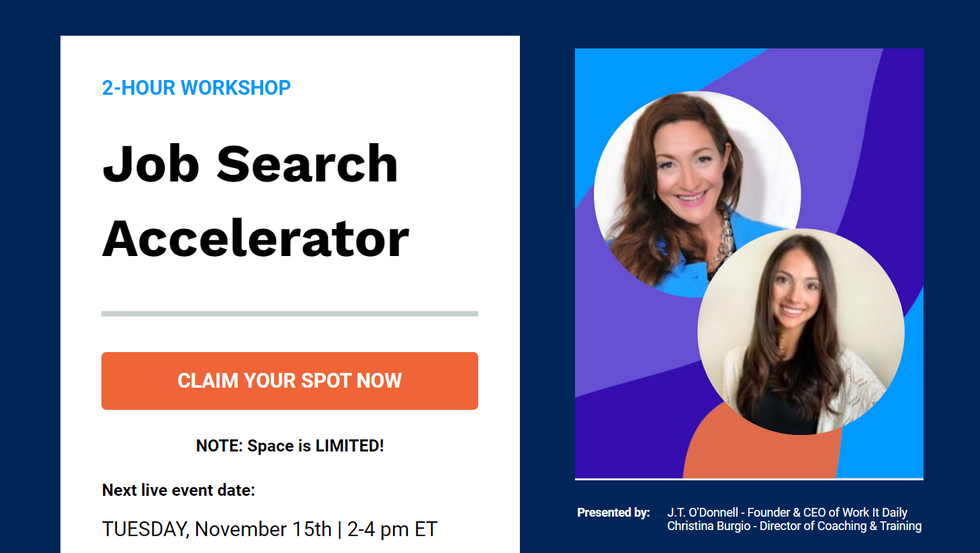
I’m a big fan of the X-Men comic books and have always loved the powers of Dr. Charles Xavier, who is telepathic. Who wouldn’t want the ability to instantly read a person’s mind and affect their behavior? This skill would come in extremely handy during interviews with hiring managers, many of whom seem to belong squarely to the school of âsay little and express even less.”
Here are five ways to turn off a hiring manager and ruin your chances of getting the job.
1. Lack Of Specificity In Your Resume

A big mistake job seekers make is submitting overly general resumes. This makes sense in theory. After all, the more applications you can shoot off, the more interviews, right? But this can really turn off a hiring manager, who wants to know exactly how your background will enable you to tackle the problems they need to be solved. Clichés just won’t cut it at this stage.
Here’s what you should do instead:
- Create a shortlist of 5-10 positions you’re an ideal fit for.
- Study the job postings for positions like this, as well as LinkedIn profiles for people who currently have these jobs.
- Tailor your resume to quickly communicate fit for these roles.
Once you have a solid framework in place, include metrics-based quantifiable accomplishments on your resume for every major position you’ve held that proves your ability to execute.
Here’s an example: Saved global Telecom company $500M over 2 years through development and deployment of end-to-end Complexity Reduction methodology resulting in purchasing and inventory efficiencies.
2. Too Aggressive About Career Advancement

Look, it’s great to be ambitious. And of course, the job you’re after today is probably not the one you want to retire on. But you need to place your focus squarely on becoming the ideal candidate for THIS job before even talking about the next step. Neglect to do this, and a hiring manager will naturally start thinking that you might jump ship within a year, and they’ll be back to square one.
Create a short “value presentation” for the interview that talks about how your three to four strongest skills can be applied immediately towards helping the company. It’s similar to a 30-60-90 day plan. Get creative here!
For example, if you’re going after a product development position, why not run some quick usability tests on a company’s products, document them, and develop some design suggestions?
3. Too Open About Weaknesses

A hiring manager is not a career counselor. With the latter, it’s perfectly fine to be honest about vulnerabilities in your personality or “pet peeves” that drive you crazy in the work environment. But if you take the same approach with a hiring manager and confide things like you have trouble balancing family responsibilities with workplace demands, you’ll most likely get passed over.
They’re not only looking to find the best candidate but manage risk.
Learn how to “spin” negatives into something that ultimately leads to success. For example, if you’re asked what your greatest weakness is, you can tell a story about how you once had chronic shyness and needed 30 minutes to “amp yourself” up for a simple phone call, and now, through courage and repeated exposure, you can handle dozens of calls with high-level clients per day. Negative to positive.
This is also known as the “Experience + Learn = Grow” model, which is the best way to answer behavioral interview questions. Therefore, you should definitely learn this strategy before your next job interview.
4. Not Following Up

Following up matters! It shows that you’re truly invested in landing the position and aren’t just treating it as one of many potential opportunities.
We recommend emailing everyone you met at the company within 24 hours of your interview thanking them for the opportunity, followed by an email sent a week later that essentially continues the conversationâadding greater detail to questions raised, sharing an industry article of interest, and so on.
You’re making it clear that the interview was the beginning of an ongoing relationship, no matter the outcome of the interview process.
5. Lack Of Enthusiasm

If a hiring manager has to choose between the most qualified candidate on paper and a less qualified candidate who brings genuine passion to the table, they’ll go for the latter every time. You can teach someone almost anything except enthusiasm.
So, if you have a personal connection with the company you’re interviewing for, and believe that this is a meaningful step in your life’s ambitions, or simply love the unique culture they’ve developed, take time in the interview to let them know!
It also doesn’t hurt to explicitly state, “I’m very interested in this position, and would love to see a positive outcome,” or something similar. Excitement fuels job offers!
Making the five mistakes above will ruin your chances with a hiring manager every time. To secure your chances of getting the job, be sure to tailor your resume, create a 30-60-90 day plan, learn how to answer behavioral interview questions, follow up after the job interview, and state your enthusiasm for the position.
It’ll be impossible to ruin your chances with a hiring manager with that strategy.
Need more help with your job search?
We’d love it if you signed up for Work It Daily’s Event Subscription! Get your career questions answered in our next live event!
This article was originally published at an earlier date.







